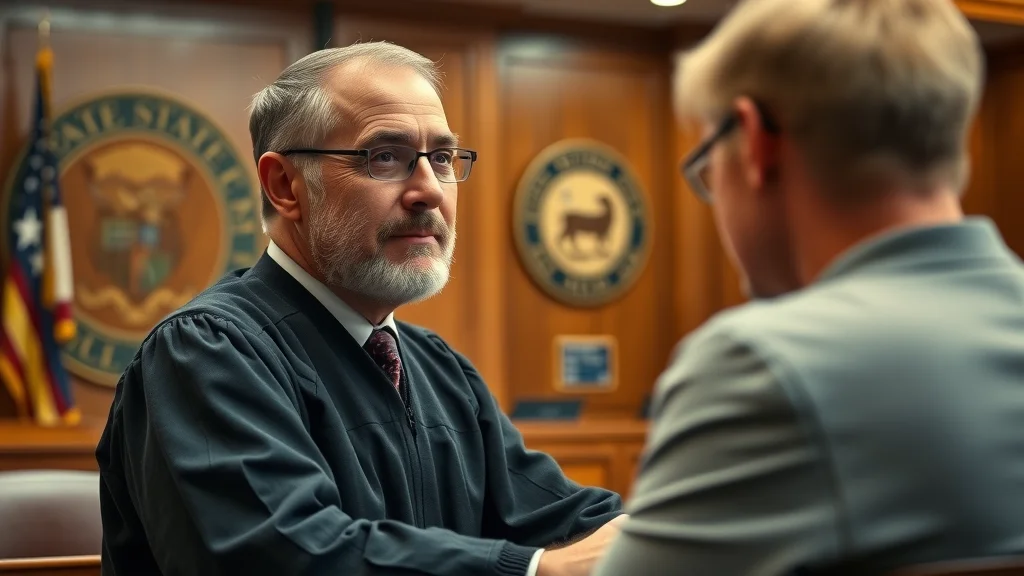When your family’s future is at stake, nothing feels more personal. Every parent deserves a team that fiercely protects their parental rights and understands the complexities of high asset custody matters. As you navigate the uncertainty and emotional strain of custody law in Henderson, our child custody attorneys are committed to standing by your side every step of the way—helping you secure the best possible outcome for your children and peace of mind for your future.
Your Trusted Child Custody Attorney Henderson – Protecting What Matters Most
Choosing the right child custody attorney in Henderson is one of the most critical decisions a parent can make during a custody matter. At Leavitt Family Law Group, we understand that custody matters involve much more than just legal arguments—they carry the weight of your child’s wellbeing, your peace of mind, and your financial stability. Our specialized family law team provides robust representation for parents facing high-stakes, high net worth child custody law disputes throughout Henderson and neighboring Las Vegas communities.
Whether you are seeking sole or joint custody, need guidance in a modification of custody orders, or are involved in a high-asset or interstate custody arrangement, we tailor our approach for your unique circumstances. As seasoned custody lawyers with deep roots in the Henderson child legal community, we advocate fiercely for your parental rights and work tirelessly to resolve custody issues with integrity, strategy, and effective communication. Our mission is to guide clients through every step of the process, from strategy consultation to final court decisions—so you never feel alone on this journey.

What You’ll Learn From Our Henderson Child Custody Lawyers
- What child custody attorney Henderson services include
- Key steps in your child custody matter
- Understanding Nevada child custody law and family law dynamics
- How high net worth custody arrangements are handled
- Common questions and answers about custody cases
Why Choose Leavitt Family Law Group for Child Custody in Henderson
- Board-certified family law expertise
- Specializing in complex, high net worth custody law cases
- Personalized approach for each custody matter
- High success rate in Henderson child custody cases
“Our goal is to secure the best possible outcome for you and your children—both now, and for years to come.” – Leavitt Family Law Group
Comprehensive Child Custody Attorney Henderson Services
At Leavitt Family Law Group, our child custody attorney Henderson services address all aspects of custody law, leveraging our experience in handling complex, high asset situations while attending to every detail of your custody arrangement. Our law firm represents a diverse array of clients, from single parents navigating their first custody issue, to families facing particularly intricate high net worth custody matters. Every custody case we handle is different—requiring an individualized, comprehensive approach backed by an experienced team of attorneys.
We cover a wide breadth of custody matters, including emergency orders, interstate custody disputes, order modifications, and both sole and joint custody cases. With offices in Henderson and close proximity to Las Vegas, our practice delivers not only legal strategy, but also compassionate guidance for parents concerned about the long-term interests of the child. No matter how unique your circumstances, our custody lawyers are ready to protect your parental rights and help your family move forward with confidence.
Legal Representation for All Custody Arrangements in Family Law
- Sole and joint custody cases
- Modification of existing custody orders
- High-asset and interstate custody matters
- Emergency orders and relocations
The hallmark of exceptional child custody lawyers is their flexibility and commitment to every custody arrangement. At Leavitt Family Law, we have experience with both sole and joint legal custody — tailoring our approach to your family’s needs, whether this involves modifying existing orders or instituting emergency protections. High-asset families require a specialized perspective: protecting business holdings, investments, and privacy, while always prioritizing the health and stability of our client’s children.

Understanding Henderson Child Custody Law and the Custody Process
Nevada family law governs how child custody arrangements are determined, always focusing primarily on the best interests of the child. In Henderson, custody law is clear yet adaptable, allowing judges to tailor decisions to a family’s unique situation—divorces involving high net worth individuals and complex circumstances included. Parents must understand the distinctions between sole custody, joint legal custody, and other specialized arrangements, as each can affect your rights as well as your child’s day-to-day life.
The child custody process typically begins with a confidential consultation with a custody lawyer, detailed evaluation of each parent’s role, and the crafting of a custody agreement. The court will consider multiple factors—parental stability, previous parenting involvement, financial circumstances, and the presence of any abuse or neglect. The right legal team will demystify Nevada’s family law statutes and ensure you are well-prepared for each step, whether the case resolves through mediation or requires court litigation.
| Custody Type | Description | Applicable Scenarios |
|---|---|---|
| Sole Custody | One parent has legal & physical custody | Abuse, neglect, long-distance moves |
| Joint Custody | Both parents share legal/physical roles | Most Nevada custody matters |
| Split/Other | Arrangements tailored by the court | High net worth, unique situations, special needs |
Child Support and Financial Considerations in Custody Law
Financial stability and transparency are critical in every custody matter, especially when child support is at stake. Nevada’s child support laws consider both parents’ income, assets, and expenses—elements that become especially nuanced in high net worth divorce or custody cases. A qualified child custody lawyer at Leavitt Family Law Group will review your business and investment holdings, as well as your routine financial obligations, ensuring that both your rights and your child’s future are protected.
We understand that affluence adds a layer of complexity to child custody law. Families dealing with substantial estates, trusts, and offshore accounts benefit from working with attorneys familiar with business valuation and sophisticated asset division. Our law firm utilizes forensic CPAs, valuation experts, and deep knowledge of Henderson child custody statutes to ensure fair and positive outcomes in even the most complex custody arrangements.

High Net Worth Divorce and Custody Matters: Unique Challenges
- Division of complex business and investment holdings
- Valuation of substantial assets in a family law setting
- Addressing privacy and confidentiality in custody law
High net worth divorce and custody litigation brings a unique set of challenges. The division of complex business interests, trusts, and real estate portfolios often demands advanced expertise—something the team of attorneys at Leavitt Family Law Group is well versed in. In these scenarios, the privacy and best interests of your children remain paramount, but must be balanced with financial transparency and compliance with Nevada family law.
Our attorneys frequently work with high-income earners and public figures, recognizing the need for confidential, discreet legal strategy. From asset valuation to international account tracing, we ensure that your high-value assets are safeguarded while aggressively pursuing a custody and visitation plan that supports your family’s future stability. Trust in a child custody attorney Henderson who understands both the complexities of modern family law and the sensitivities involved in high-profile divorce.
Our Proven Process for Henderson Child Custody Cases
- Initial confidential strategy session with a child custody attorney Henderson expert
- Analysis of your custody arrangement options under family law
- Development of a robust case plan for court
- Negotiation, mediation, or litigation as needed
- Ongoing communication and updates throughout your case
Our process for Henderson child custody cases is designed for efficiency and clarity. Beginning with a confidential consultation, we take the time to fully understand your situation and your goals. After a careful review of all options, your custody lawyer will outline a bespoke legal strategy for your custody matter, complete with a step-by-step plan tailored to your needs.
Throughout negotiation, mediation, or if necessary, litigation in court, you will receive timely updates and compassionate advice. We prioritize your peace of mind and maintain open channels of communication, so you always know where your case stands. As experienced Henderson child custody lawyers, our goal is to resolve your child custody matter with maximum efficiency while safeguarding your interests at every turn.

Client Reviews: Success Stories from Our Henderson Child Custody Lawyers
- “Leavitt Family Law guided me through a very complex child custody matter with professionalism and clear communication.”
- “Their expertise in high-asset custody law truly made a difference for my family.”
Our clients trust us to navigate everything from everyday custody issues to the most complicated, high-asset divorce and custody matters. Their testimonials reflect our dedication, compassion, and technical know-how as leading Henderson child custody lawyers. We take pride in guiding our clients to brighter futures—both for themselves and their children—no matter the complexity of their custody case.
In this short, informative video, a professional Henderson child custody attorney breaks down the journey from your first confidential consultation through negotiation, court preparation, and the final resolution of your case. Hear firsthand from local clients about what made the difference for them in their custody cases, and why choosing a law firm with deep expertise in Henderson and Las Vegas family law truly matters.
People Also Ask About Child Custody Attorney Henderson
What is the biggest mistake in custody battle?
The biggest mistake parents make during a custody battle is allowing personal conflict to overshadow the best interests of the child. Emotional arguments or speaking poorly about the other parent, especially in court, can backfire. Courts and judges in Nevada family law settings require parents to demonstrate willingness to foster a positive relationship between the child and both parents. Working closely with an experienced child custody attorney Henderson ensures focus remains where it should—on your child’s future.
Who wins most child custody cases?
In Nevada, most child custody cases result in some form of joint legal custody, as courts assume it’s in the best interest of the child for both parents to be involved—unless one parent poses a risk to the child’s wellbeing. Mothers and fathers are given equal consideration under current custody law. A knowledgeable child custody lawyer can present evidence supporting your role and commitment, helping to secure a favorable custody arrangement tailored for your family.

What not to say to a family court judge?
Never disparage the other parent, act disrespectful, or make unsupported accusations in front of a family court judge. It’s important to stay focused on your child’s needs and avoid emotional outbursts or combative statements. Judges in Henderson child custody cases value professionalism, evidence-based arguments, and proposals that are in the best interest of the child. Let your child custody attorney Henderson do the legal talking—guiding your case forward with strength and dignity.
What looks bad in a custody case?
Negative factors in custody law can include evidence of abuse or neglect, frequent changes in residence, failure to communicate with the other parent, substance abuse, or blatant disregard for court orders. Demonstrating a lack of stability or refusal to encourage your child’s relationship with the other parent may harm your case. Working honestly and proactively with a trusted child custody lawyer gives you the best chance for a successful outcome in Henderson child custody matters.
Watch our attorney-led video to learn how child custody law in Henderson is interpreted, what judges are looking for, and what you should know if you’re starting or responding to a custody action. This resource is perfect for parents with questions about legal custody, joint legal, or unique child custody arrangements—particularly those navigating complex or high-asset divorces.

FAQs – Child Custody Attorney Henderson
- Can grandparents file for custody or visitation in Henderson?
Yes, Nevada law allows grandparents to petition for visitation—and in some cases, custody—when doing so is in the best interests of the child, particularly if the parents are deemed unfit, absent, or if the child has lived with them for an extended period. - How long does a typical child custody case take?
Every custody case is unique, but straightforward child custody matters can take a few months, while contested, high-asset, or interstate cases may require longer—sometimes up to a year or more. Your attorney will set expectations based on the complexity of your situation. - How does income affect the custody arrangement?
Income can affect child support obligations and, in high net worth cases, influences the court’s review of each parent’s ability to provide stable care. Still, legal and physical custody decisions are primarily guided by the child’s best interests, not solely financial standing. - Does the court favor mothers or fathers in custody law?
No, Nevada courts do not favor mothers or fathers; both have equal rights to pursue legal and physical custody. Judges assess each parent’s relationship with the child, their caregiving history, and what arrangement serves the child’s best interests.
Key Takeaways for Parents Seeking a Child Custody Attorney Henderson
- Choosing the right child custody lawyer is critical, especially for complex, high-asset cases
- Understanding local family law ensures strategic advantages
- Preparation, professionalism, and expert advocacy lead to optimal outcomes
Secure Your Parental Rights with an Experienced Child Custody Attorney Henderson
Don’t leave your family’s future to chance. Call Leavitt Family Law at (702) 605-0065 today for a confidential consultation and protect your parental rights with Henderson’s most trusted family law team.
Sources
When navigating child custody matters in Henderson, it’s crucial to have access to comprehensive resources that can guide you through the legal landscape. The article “Child Custody Attorney in Henderson” by Leavitt Family Law Group offers an in-depth look at the various aspects of child custody cases, including the distinctions between legal and physical custody, and the importance of mediation in reaching amicable agreements. (leavittfamilylaw.com) Additionally, the “Henderson Child Custody Lawyer” page by Ford & Friedman provides valuable insights into Nevada’s child custody laws, emphasizing the state’s preference for both parents to play active roles in their children’s lives and the significance of having vigilant legal representation. (fordfriedmanlaw.com) If you’re seeking to protect your parental rights and ensure the best outcomes for your children, these resources offer essential information and guidance.
